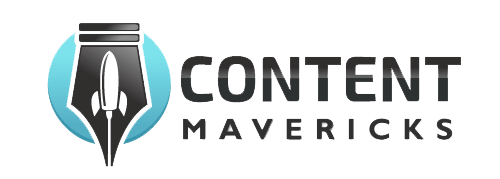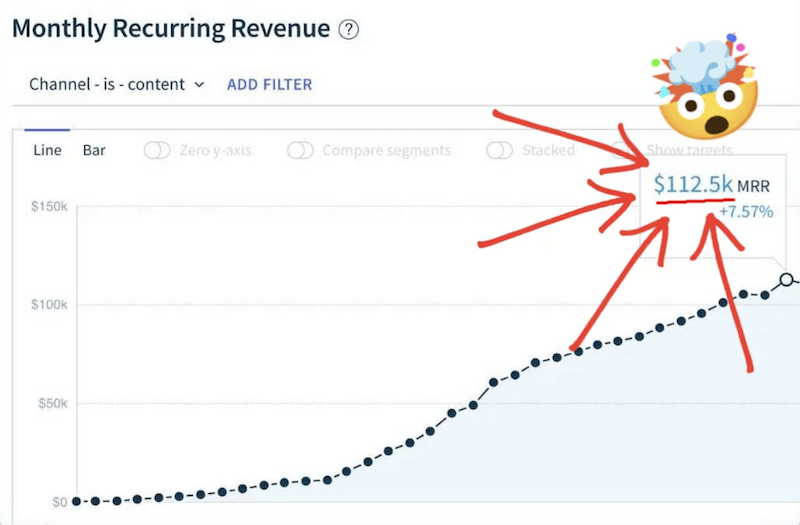Today there are 63 different Shopify ERPs. We spent 78 hours comparing the top 50 to find the seven best you can use to manage and fulfill your Shopify orders.
What is the Best Shopify ERP?
- NetSuite— best of the best
- BSS Commerce — best for B2B
- Sage 300 — best for SMBs
- Odoo — best for B2C
- SAP S/4HANA — best for large businesses
- Microsoft Dynamics 365 — best for analytics
- Epicor — best for distributors
1. NetSuite
Our Verdict — Best Of The Best
Price: Custom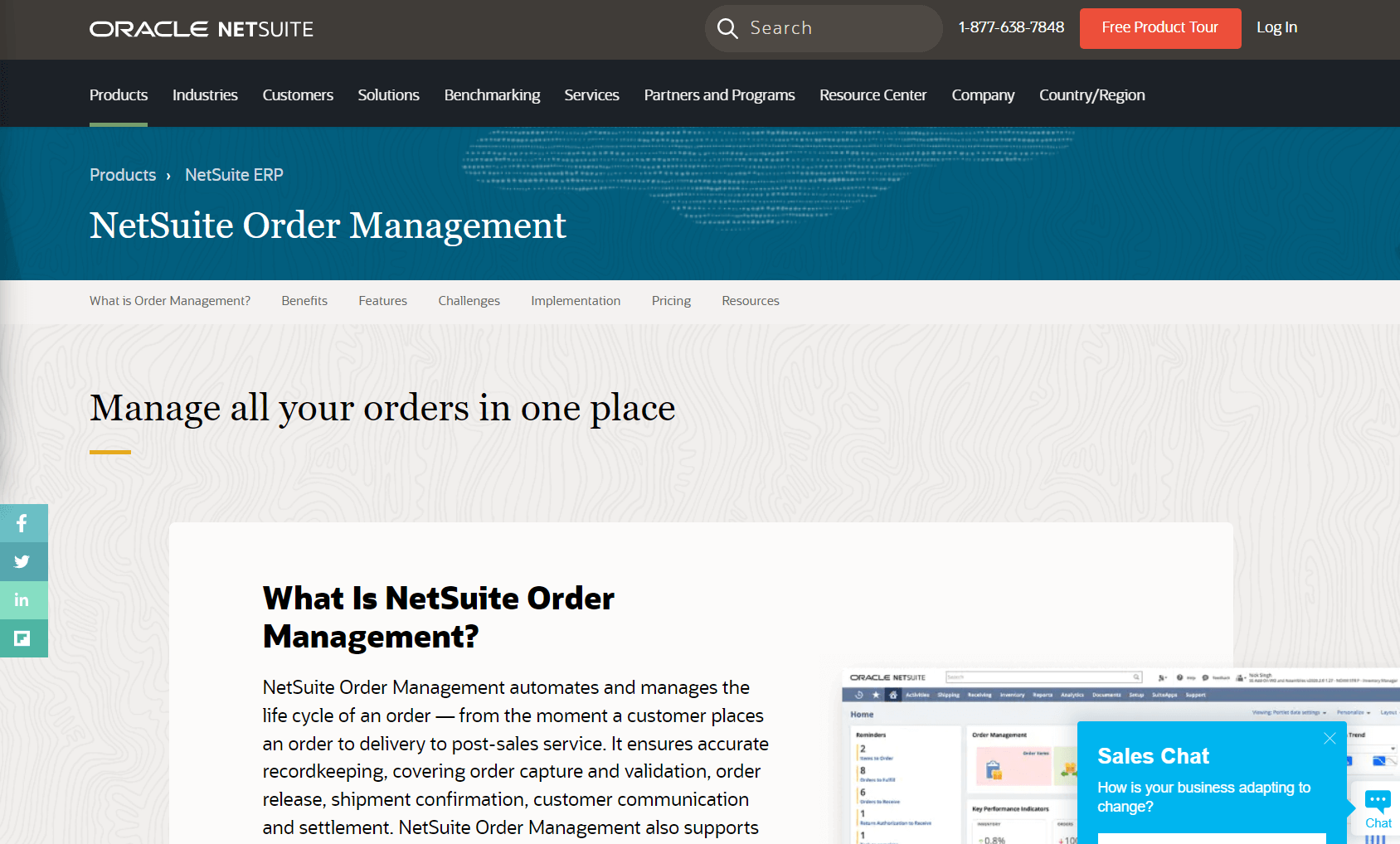
NetSuite is an extensive ERP that fits thriving ecommerce businesses like a glove. We think it’s the best because of its in-depth analytics, built-in CRM functionality, and streamlined order fulfillment processes.
The Best Part:
Robust inventory management. NetSuite helps you track and manage inventory levels across multiple sales channels, including Shopify.
The Worst Part:
Lengthy implementation process. NetSuite requires some time and effort to be set up, at first.
Get it if you want a comprehensive ERP solution for your Shopify store to streamline processes across multiple channels.
I recommend you sign up for a NetSuite product tour to learn how it can benefit your Shopify store.
(free product tour)
Best For
NetSuite is best for Shopify businesses that want a comprehensive ERP solution to streamline order management, inventory, and fulfillment.
Top Features
- Native Shopify integration. Bridge the gap between your back-end and front-end with NetSuite’s native integration: Shopify Connector.
- Streamlined order fulfillment. Import all of your orders from Shopify, call center, mobile, or any other sales channel into NetSuite, and let it take care of the rest — fully automated.
- Provide better customer support. Support your customers in real-time with refund requests, returns, and questions using NetSuite’s built-in customer support dashboard.
- Finances at your fingertips. Track revenue, expenses, and profit margins generated on your store with Netsuite’s powerful reporting tools.
- Seamless 3PL integration. Sync NetSuite with your 3PL providers like Amazon Supply Chain or Shipstation to seamlessly fulfill orders, fast.
Pricing
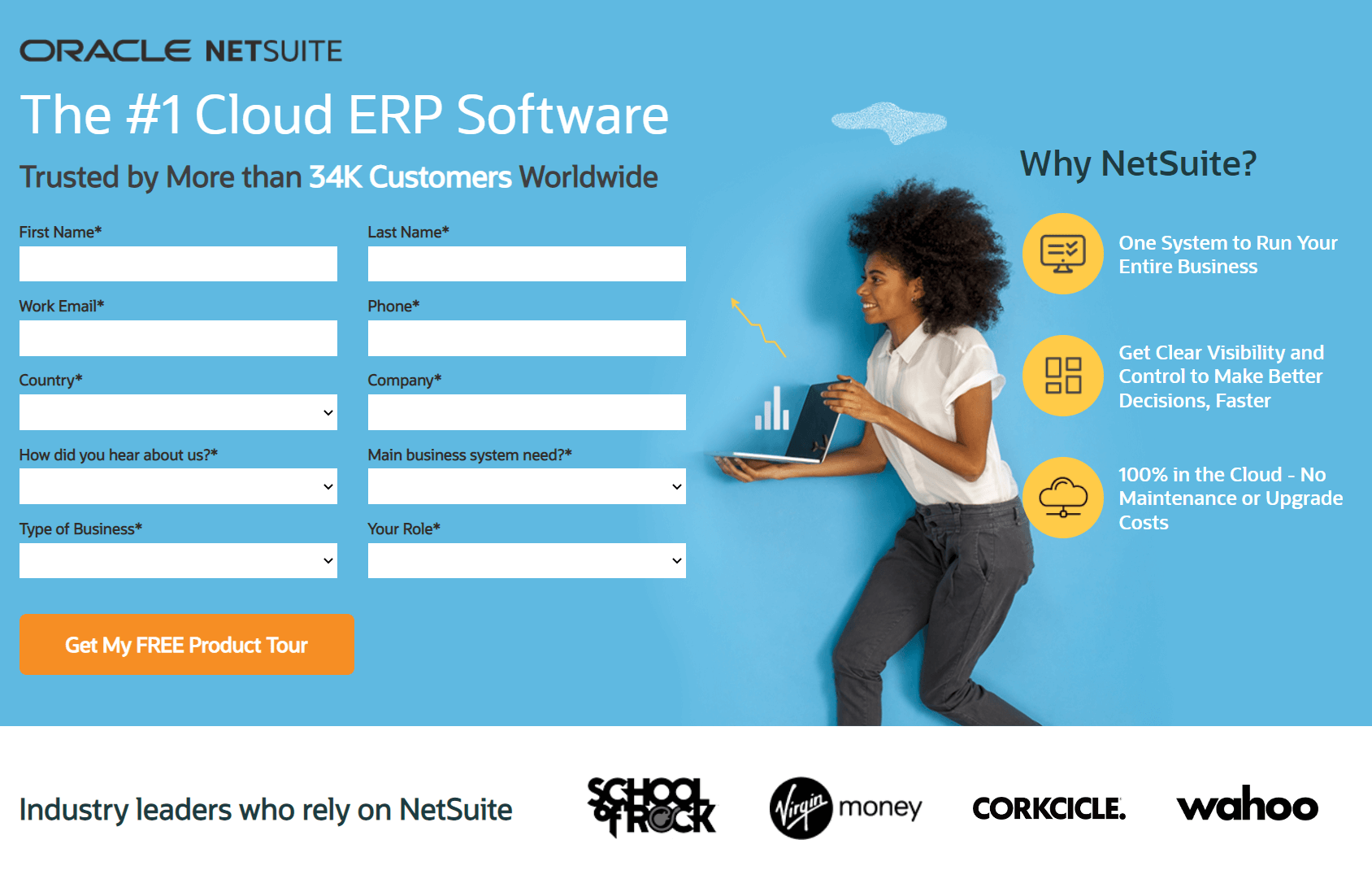
NetSuite offers a single pricing plan:
Custom pricing: Monthly plan, for thriving ecommerce businesses that want a customizable ERP to seamlessly integrate with Shopify and centralize order, finance, and inventory management.
Try NetSuite today with a free product tour.
2. BSS Commerce
Our Verdict — Best For B2B
Price: Starts at $25/month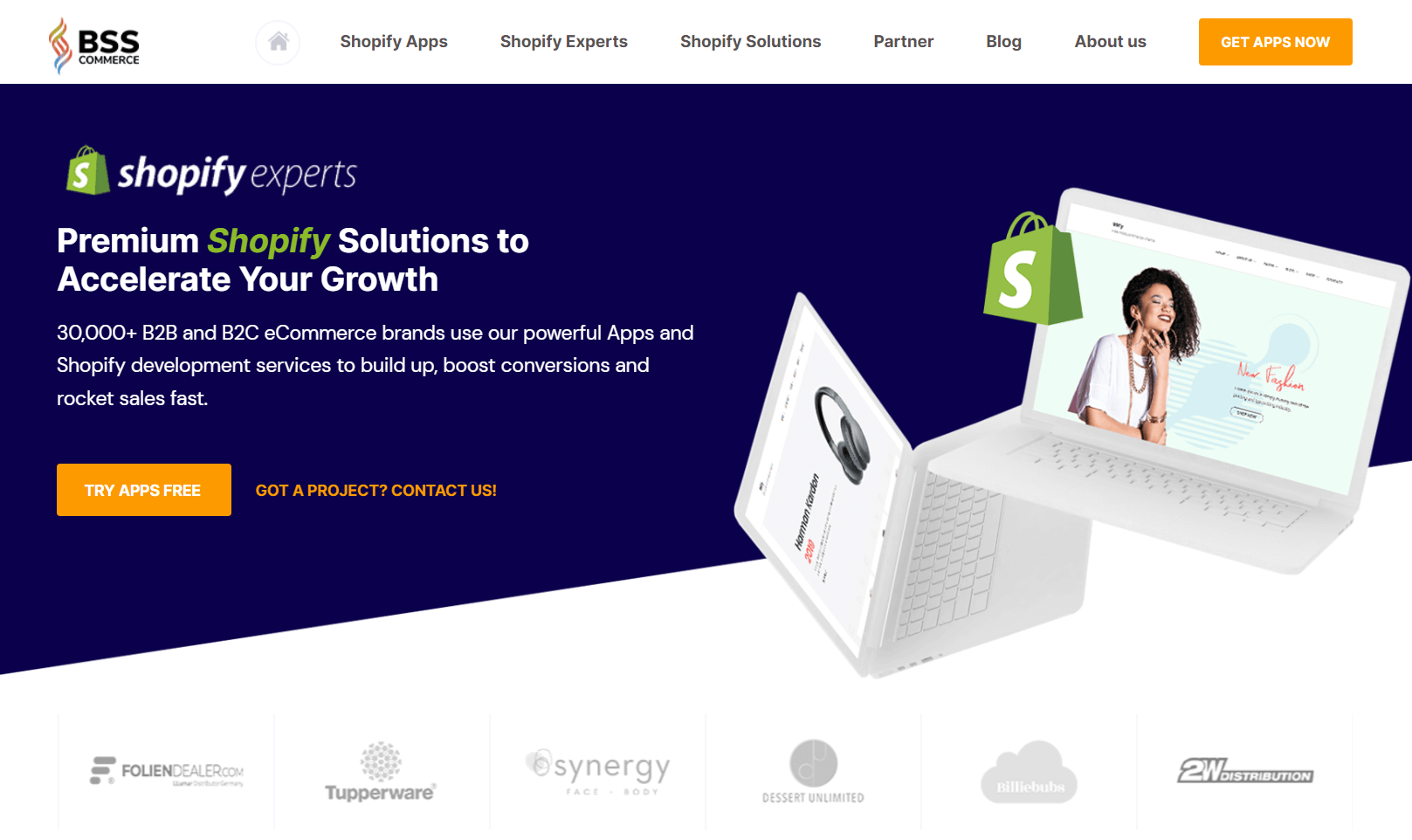
BSS Commerce is a Shopify ERP app designed for B2B and wholesale. We think it’s the best for B2B because of its seamless integration with Shopify, advanced pricing management, and tax control settings.
The Best Part:
User-friendly interface. BSS Commerce is easy to navigate from the get-go, making tasks such as handling bulk orders, pricing, and tax management a breeze.
The Worst Part:
It’s not designed for B2C. B2B Commerce focuses primarily on B2B Shopify stores; it lacks important features for B2C companies.
Get it if you want a B2B and wholesale ERP that integrates seamlessly with your Shopify store.
I recommend you start with a 14-day free trial, then sign up for the Advanced plan ($50/mo) to streamline your B2B processes.
(14-day free trial)
Best For
BSS Commerce is best for Shopify-based B2B businesses that need an easy-to-use ERP to streamline their operation.
Top Features
- Advanced wholesale functionalities. Automate your wholesale process with features like manual order processing, order limits, and shipping rate customization.
- Discount code management. Boost customer loyalty and sales with easily generated discount codes for seasonal promotions, flash sales, and customer rewards.
- Skip the back-and-forth. Add custom fields to your Shopify order pages, allowing your B2B customers to skip the back-and-forth and fill out all necessary info with less clicks.
- Ready to integrate. Streamline your ecommerce operation with BSS Commerce’s public API access to onboard current tools into your ERP.
- Say adios to tax headaches. Automate tax display rules and VAT exemptions within your store to keep it compliant with national and international tax regulations.
Pricing
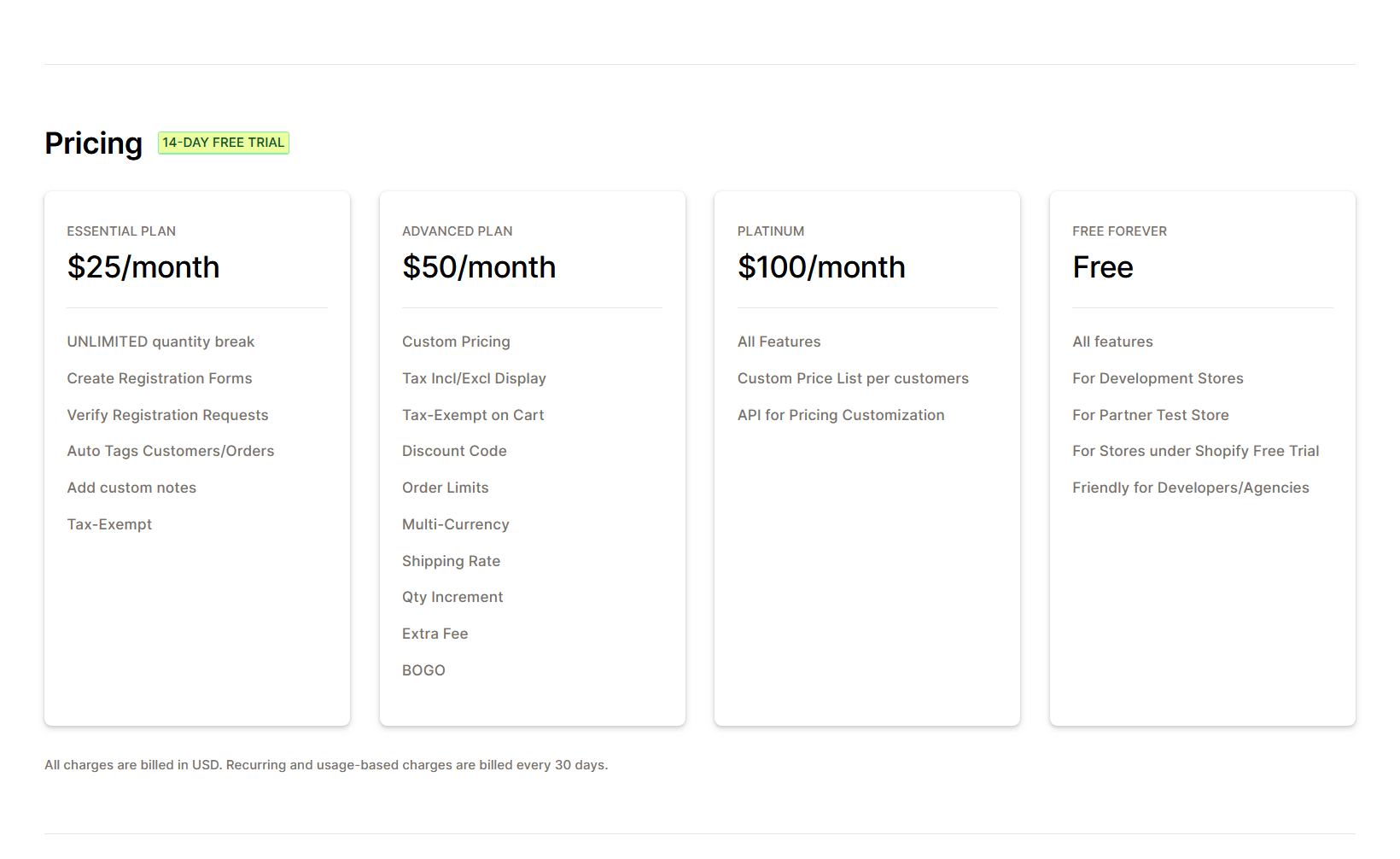
BSS Commerce offers four pricing plans:
- Essential: $25/month for ecommerce businesses that want a basic Shopify ERP to set up quantity breaks, automate VAT tax exemptions, and segment customers and orders.
- Advanced: $50/month for Shopify ecommerce businesses that want an advanced Shopify ERP with Essential features plus order limits, tiered shipping rates, and automated billing of extra fees.
- Platinum: $100/month for Shopify ecommerce businesses that want a customizable ERP with all Advanced tools plus API and additional custom pricing options.
- Free: Free forever, for Shopify store owners running development stores or within a Shopify trial — includes all Platinum features.
Try BSS Commerce today with a free 14-day trial.
3. Sage 300
Our Verdict — Best For Small And Midsize Businesses
Price: Custom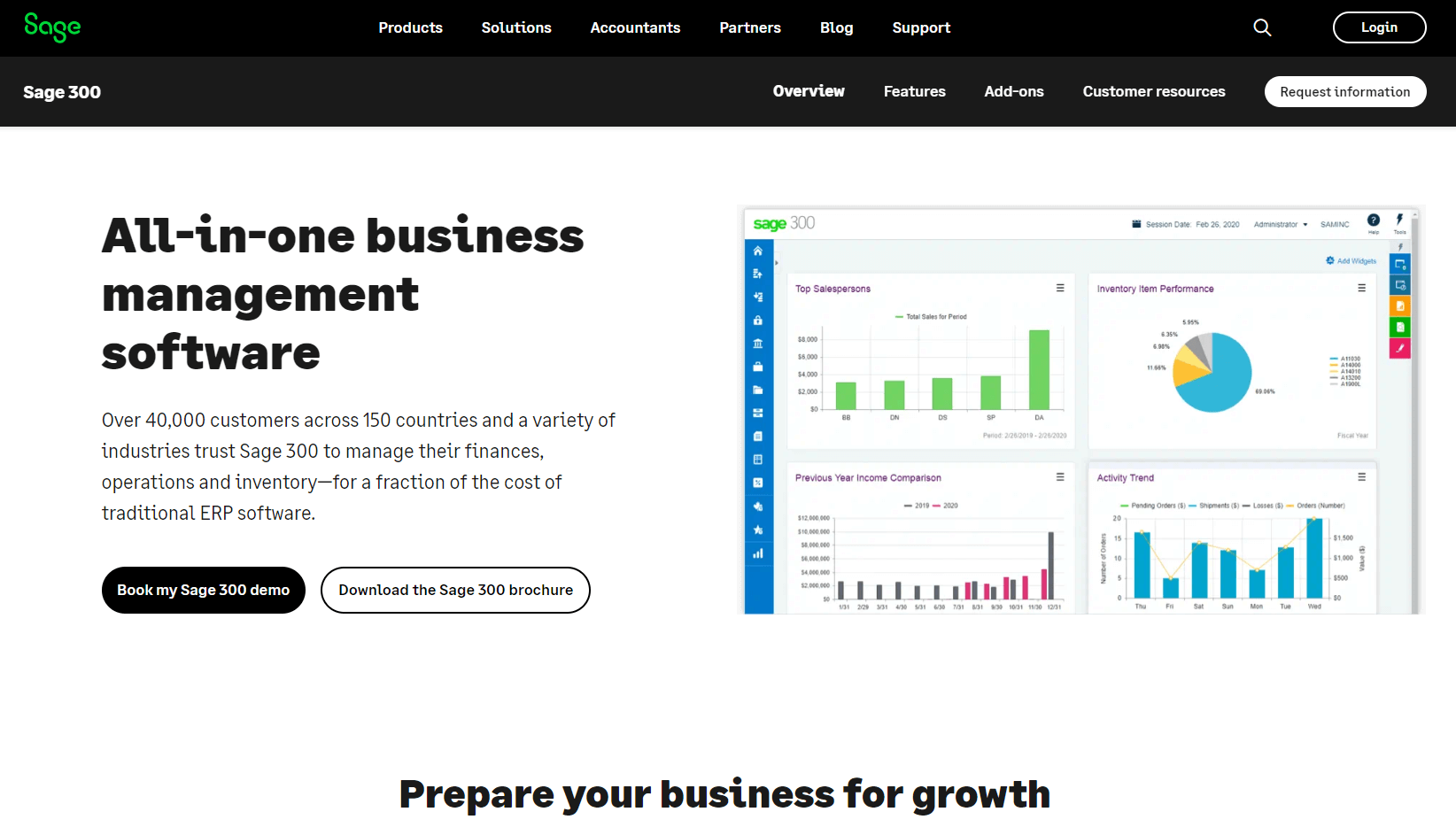
Sage 300 is a powerful ERP for SMBs looking to better manage their Shopify operations. We think it’s the best for small and midsize businesses because of its powerful business intelligence features, inventory management capabilities, and order management features.
The Best Part:
Powerful reporting. Sage 300 generates robust reports based on your Shopify data to detect which promos, sales, and product pages that bring the most conversions.
The Worst Part:
It needs a third-party Shopify integration. Sage 300 doesn’t offer native Shopify integration. Be ready to shell out some extra cash for a third-party integration on top of your subscription.
Get it if you want an intelligent ERP system to easily manage inventory, orders, and customers, and generate custom business intelligence reports for your store.
I recommend you book a free demo with Sage 300.
(free demo)
Best For
Sage 300 is best for small and midsize businesses that need an ERP to automate their store’s processes and generate powerful reports.
Top Features
- Automated bank reconciliations. Match your Shopify payments to your records to detect discrepancies and unrecorded payments — so that money stops slipping through the cracks.
- Efficient multi-currency accounting. Manage your accounting for multi-currency orders, coming from international customers.
- Holistic supplier management. Track supplier information, monitor orders, and print checks with Sage’s vendor account functionalities.
- Serialized inventory and lot tracking. Take your inventory control up a notch with automatic serial and lot number generation to help manage stock, trace items, and streamline quality control.
- Integrated payment processing. Invoice customers for B2B, manual, or recurring orders with Sage’s built-in payment processing — It supports PayPal, Stripe, FortisPay, and Paya.
Pricing
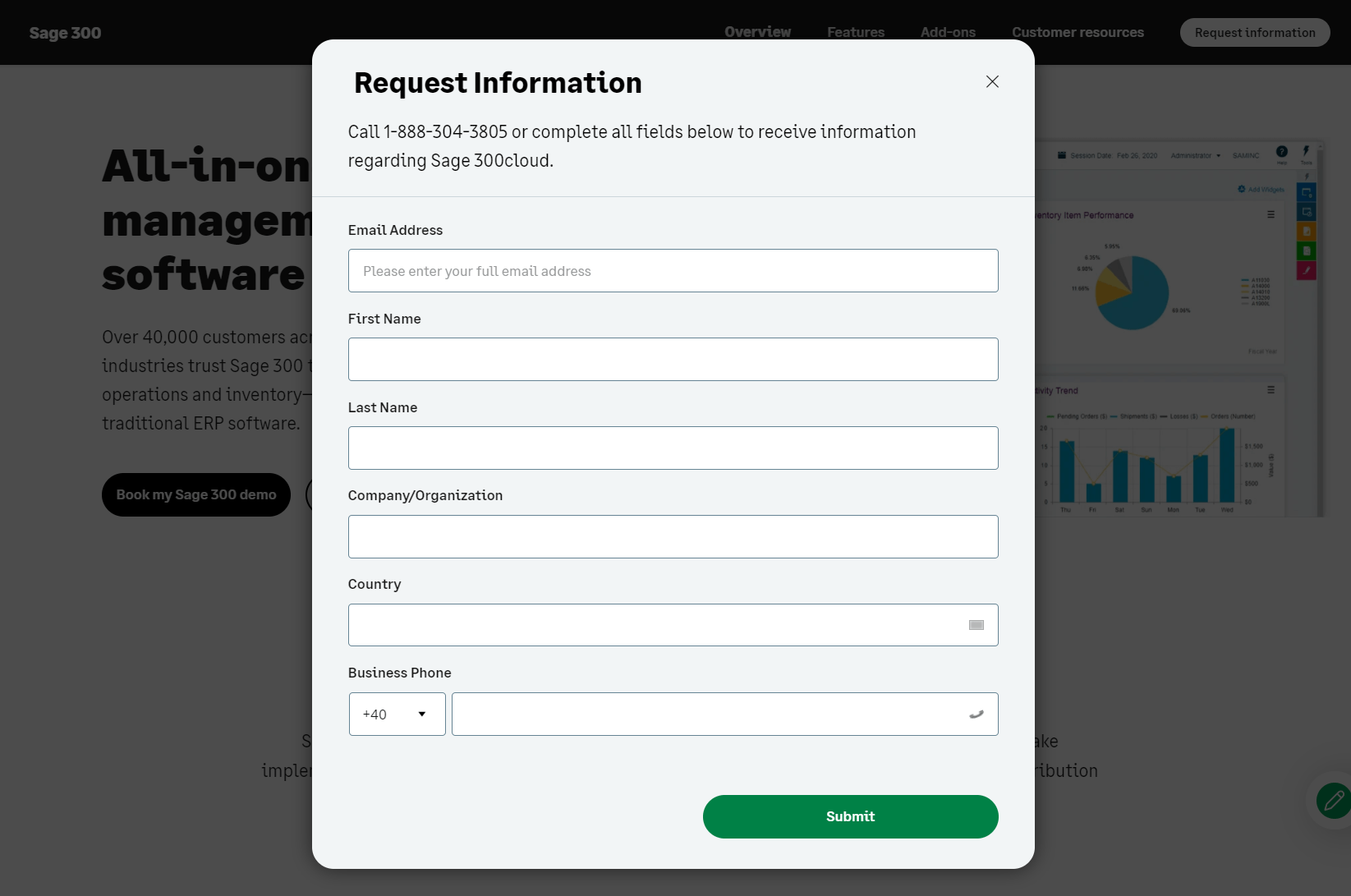
Sage 300 offers a single pricing plan:
Custom pricing: Yearly plan, for small and midsize Shopify businesses that want a powerful ERP to automate purchase order procedures, manage inventory, and generate extensive reports in seconds.
Try Sage 300 today with a free demo.
Our Top Three Picks
Here’s a quick summary of our top three picks:
- NetSuite — best for B2B
- BSS Commerce — best of the best
- Sage 300 — best for SMBs
Here’s a quick comparison of our top seven picks:
Tool | Entry Offer | Pricing |
|---|---|---|
NetSuite | Free product tour | Custom |
BSS Commerce | 14-day free trial | Starts at $25/mo |
Sage 300 | Free demo | Custom |
Odoo | Free plan | Starts at $31.10/mo |
SAP S/4HANA | 30-day free trial | Custom |
Microsoft Dynamics 365 | 30-day free trial | Starts at $180/mo |
Epicor | Free demo | Custom |
Here are the top 50 Shopify ERPs we considered in this review:
- NetSuite
- BSS Commerce
- Sage 300
- Odoo
- SAP S/4HANA
- Microsoft Dynamics 365
- Epicor
- Blue Cherry
- SAP S/4HANA
- Quickbooks Enterprise
- Apprise
- Sync
- Acumatica
- Infor
- Brightpearl
- Aptean
- Business Central
- Axonaut
- Wrike
- Kechie
- Alere
- Paragon ERP
- Erply POS
- Punchout Cloud
- ERPAG
- Versa Cloud ERP for eCommerce
- Inventory Management 4 Makers
- banma ERP
- Dianxiaomi
- Allroot
- MabangErp3
- Striven
- TallyPrime
- Brightpearl
- SAP Business ByDesign
- XoroERP
- AIMS360
- Fishbowl
- S2K Enterprise
- Deltek Costpoint
- MRPeasy
- 24SevenOffice
- PolyPM
- SyteLine
- Fusion 360
- A2000
- Sage 100cloud
- Visibility ERP
- MasterTools
- ePROMIS ERP
Can you use Shopify as an ERP?
Shopify is a popular ecommerce platform designed primarily for online merchants and businesses. While it doesn't function as a full-fledged Enterprise Resource Planning (ERP) system, it does offer various features and native integration capabilities that can enhance your business processes. Shopify Plus, for example, is an advanced plan that provides a more comprehensive solution for larger online businesses.
To expand Shopify's capabilities to cover core business processes, like financial reporting, inventory counts, and human resources, you can integrate it with a cloud-based ERP system. This would allow you to manage your commerce operations more efficiently and have access to real-time information that can inform your financial planning and decision-making.
Integration partners and implementation teams can help you connect Shopify with ERP systems like Sage 300 or NetSuite, which are renowned for their extensive range of financial management tools, integrated management of core business processes, and powerful project management solutions. By doing so, you can create a seamless experience between your ecommerce platform and your ERP, making your business more efficient and effective.
What is the number #1 cloud ERP in the world?
SAP is considered the number one cloud ERP in the world, offering a wide range of features and functionalities that cater to various industries and business sizes. However, for Shopify users, NetSuite is often the preferred choice, as it provides more seamless integration with Shopify. NetSuite's robust financial management tools, inventory management capabilities, and customer relationship management features make it a popular choice for online merchants who want to streamline their business processes and enhance customer service for Shopify.
Other options that compete for the #1 spot of the best Shopify ERP are BSS Commerce, Sage 300, Odoo, and SAP S/4HANA.
Does Shopify integrate with SAP?
Yes, Shopify can be integrated with SAP through third-party integration partners or custom-built connectors. This integration allows online businesses to synchronize their ecommerce platform with SAP's powerful ERP system, covering areas such as financial reporting, sales order management, warehouse management, and inventory counts. By connecting Shopify with SAP, business owners can leverage the advanced features of both platforms to optimize their commerce operations and streamline orders, fulfillment, and service.
Why use NetSuite with Shopify?
Using NetSuite with Shopify comes with many benefits, as the integration allows for a more streamlined approach to managing various business processes. Some advantages include:
- Enhanced financial management: NetSuite's financial management tools can help business owners maintain accurate financial records, generate comprehensive financial reports, and make informed decisions based on real-time information.
- Improved inventory management: The integration provides accurate inventory counts and item updates, ensuring product details remain up-to-date on Shopify and NetSuite.
- Superior customer relationship management: NetSuite's CRM capabilities allow businesses to maintain better customer relationships by tracking customer interactions and helping you manage them.
- Scalability: As your business grows, both NetSuite and Shopify can scale to accommodate increasing demands, ensuring that your management systems evolve alongside your business.
- Automation: By integrating NetSuite with Shopify, you can automate many processes, reducing manual and repetitive work.
What accounting system integrates with Shopify?
Several accounting systems can be integrated with Shopify. Here are some of our top picks for accounting:
- NetSuite: A comprehensive cloud-based ERP solution that offers robust financial management tools and can be integrated seamlessly with Shopify.
- QuickBooks: A popular accounting software that can be connected with Shopify, allowing businesses to synchronize their financial data and manage transactions efficiently.
- Sage 300: A financial management system that can be integrated with Shopify through third-party apps, helping businesses with powerful tools to handle their accounting, inventory management, and other financial tasks.
The Bottom Line
To recap, here are the best Shopify ERP to try this year:
- NetSuite — best for B2B
- BSS Commerce — best of the best
- Sage 300 — best for SMBs
- Odoo — best for B2C
- SAP S/4HANA — best for large businesses
- Microsoft Dynamics 365 — best for analytics
- Epicor — best for distributors
